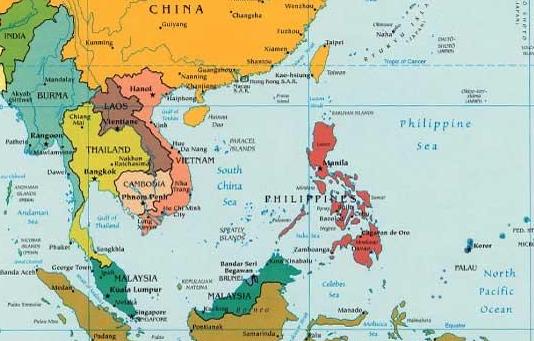According to Stratfor, B-52s’ are not safe in Guam, so much for the 2nd island chain!! But maybe we should not panic. B-52 is a very old weapon that missiles can hit or can hit their bases and Chinese are not the only ones with missiles. Guam is U.S. sovereign territory. “People in Guam vote for the President. The US is not going to surrender Guam” the more optimistic view says
I am getting so used to be always on the loser side while dealing with China and I never expect positive outcome. If the 2nd chain is also exposed, we may as well stick to the 1st chain, I mean Japan should do its best to convince US not to abandon the 1st chain
Japan is actually doing that, and the U.S. is probably not about to abandon the first chain. The U.S. defense establishment is committed to defending the first chain. So we should not worry too much at the moment. But let us look at the question in a different way.
Of course the U.S. can spend big dollars (and probably will) on new weapons and new electronic countermeasures and can keep 100,000-150,000 troops stationed in East Asia for a long time. The U.S. can risk getting involved in wars over the Senkaku Islands, or the South China Sea, or some other god-forsaken spot of no strategic significance to the U.S. But this is an expensive, dangerous policy that can well end in defeat. Consider that the Soviet Union didn’t collapse because it lacked bombs and soldiers. It collapsed because its economy no longer worked. The Soviet leaders simply could no longer afford the troops and the bombs.
The U.S. isn’t losing to China because of lack of weapons or troops. It is losing because of stupid trade, investment, and globalization policies. These stupid policies are linked to the U.S. emphasis on military power and forward deployment. At the moment, the U.S. is feeding China’s growing power by making its markets, technology, and investment capital freely available to China on a completely non-reciprocal basis. This is based on a completely false notion that globalization will make China more democratic and peace loving. As long as the U.S. pursues this policy, it and its allies will continue to lose to China and the U.S. will thereby begin also to lose allies. The U.S. will also gradually begin to lose the ability to spend and invest enough in military capability to maintain an edge in military capability.
For the U.S. and its allies to win in the long term, the U.S. must change course. It must reverse its trade and globalization policies, and stop feeding the growth of Chinese wealth. I’m not too concerned about China expanding in Asia and gaining control of or substantial power in places like Singapore, Thailand, etc. This kind of expansion will strain China and make its life more complicated. It will also alienate people like the Thais and others and that alienation will complicate China’s diplomacy and its life generally.
So, from my perspective, the winning strategy is to stop worrying so much about the first island chain and force the Koreans, Japanese, Singaporeans, Vietnamese, and others to carry more of their own water. This doesn’t mean the U.S disappears, but it does mean that the U.S. is not the call of first resort. Rather, it is the call of second resort. Meanwhile, the U.S. would focus on strengthening its own economy, switching from a persistent trade deficit to a trade surplus, while acting to limit China’s participation in the U.S. market and those of its allies. In my mind, the war is basically economic not military. The U.S. emphasis on military might hinders its ability to fight the economic war. So I want to deemphasize the military element while emphasizing industrial, technological, and economic revitalization.
Moving U.S. Bombers Out of Harm’s Way (http://stratfor.us4.list-manage.com/track/click?u=74786417f9554984d314d06bd&id=1a5cf0c20f&e=e685bdd4e8)




















Lascia un commento